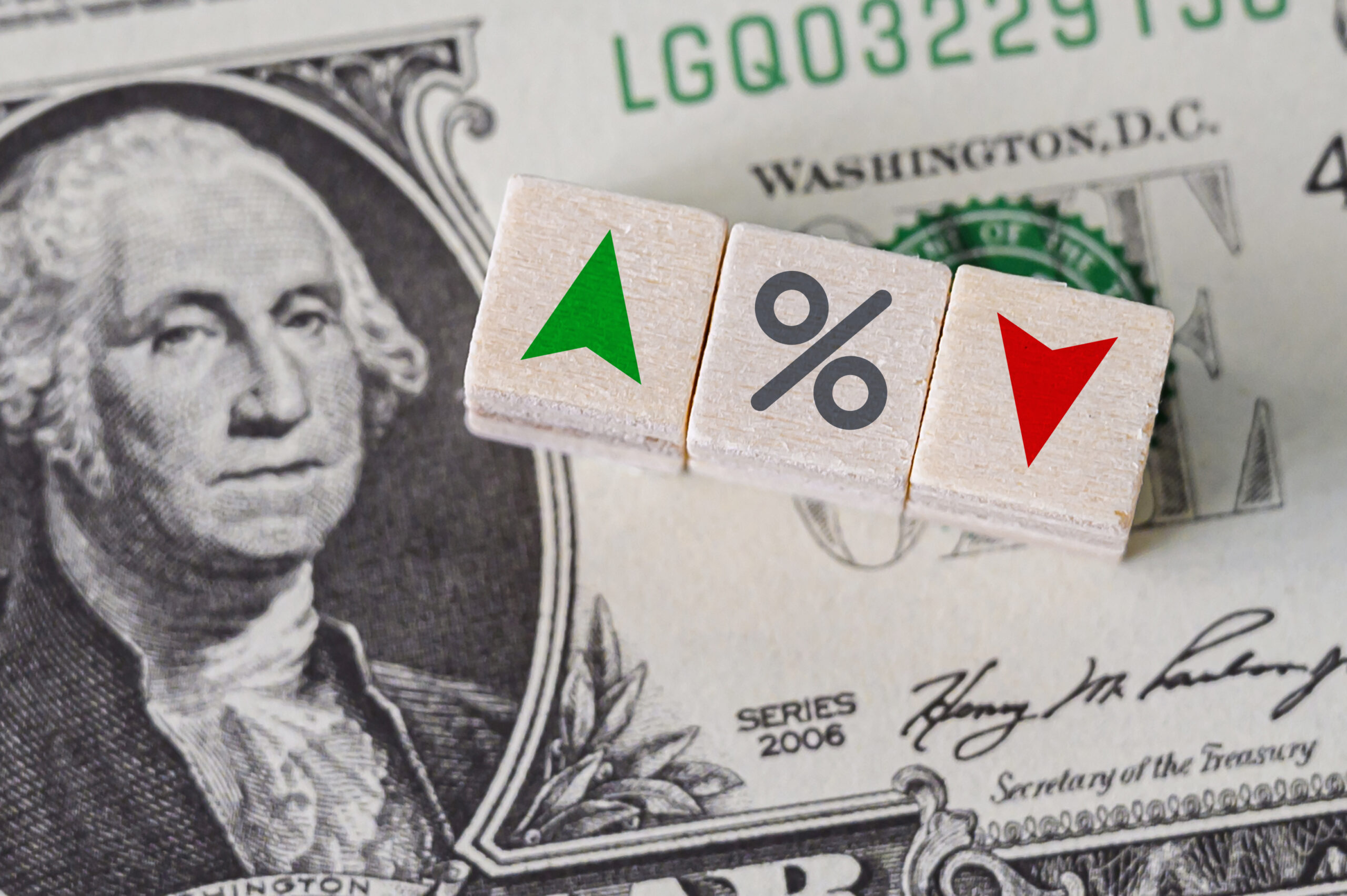
Concept drawing of dollar bill and rising and lowering interest rates.
Someone stiffed you and you’re ready to sue, right? But what amount do you assert and do you claim pre-judgment interest or do you have to wait until a judgment is issued for interest to start accruing? The answer to these questions starts (should end) with whatever the contract says. But let’s say you didn’t hire me to prepare your contract and it DOES NOT say something like “the prevailing party of any dispute arising out of this contract shall be entitled to its attorneys’ fees and all costs of whatever kind incurred relating to such dispute.”
Prejudgment Interest
In that case, your ability to assert pre-judgment interest is not so clear. When a claim sounds in contract or tort, a party with a liquidated claim is entitled to prejudgment interest as a matter of right. Precision Heavy Haul, Inc. v. Trail King Industries, Inc., 224 Ariz. 259 (App. 2010) So the question becomes, “what is a liquidated claim?” A liquidated claim is “one ascertainable by accepted standards of valuation such that the sum demanded is susceptible to exact computation without reliance on opinion or discretion.” If the claim is liquidated prejudgment interest is applicable and the prejudgment interest begins to accrue when the creditor provides notice/demand of the amount owed. The invoice usually suffices for this purpose. Finally, assuming prejudgment interest applies, the final question is “what interest rate are you entitled to?” Again, the answer to this question should be found in the applicable contract. But, if the contract doesn’t address interest, ARS 44-1201 provides that any indebtedness (except for medical debt) that does not have a contractually agreed interest rate accrues interest at the lesser rate of either 10% per annum or Prime + 1% per annum.
For example, today’s prime rate is 8.25% (June 22, 2023) so the applicable interest rate would be 9.25%. However, if the cost of money keeps increasing, interest will be capped at 10% once prime breaks 9%.
Post Judgment Interest
Regardless of whether you’re entitled to prejudgment interest, a monetary judgment is typically subject to post judgment interest. So how is post judgment interest calculated? If your contract says what the interest rate should be, and subject to a few exceptions like medical bills, the contract rate applies. But if the contract does not discuss post judgment interest (or any interest), then the ARS 44-1201 calculation applies.
